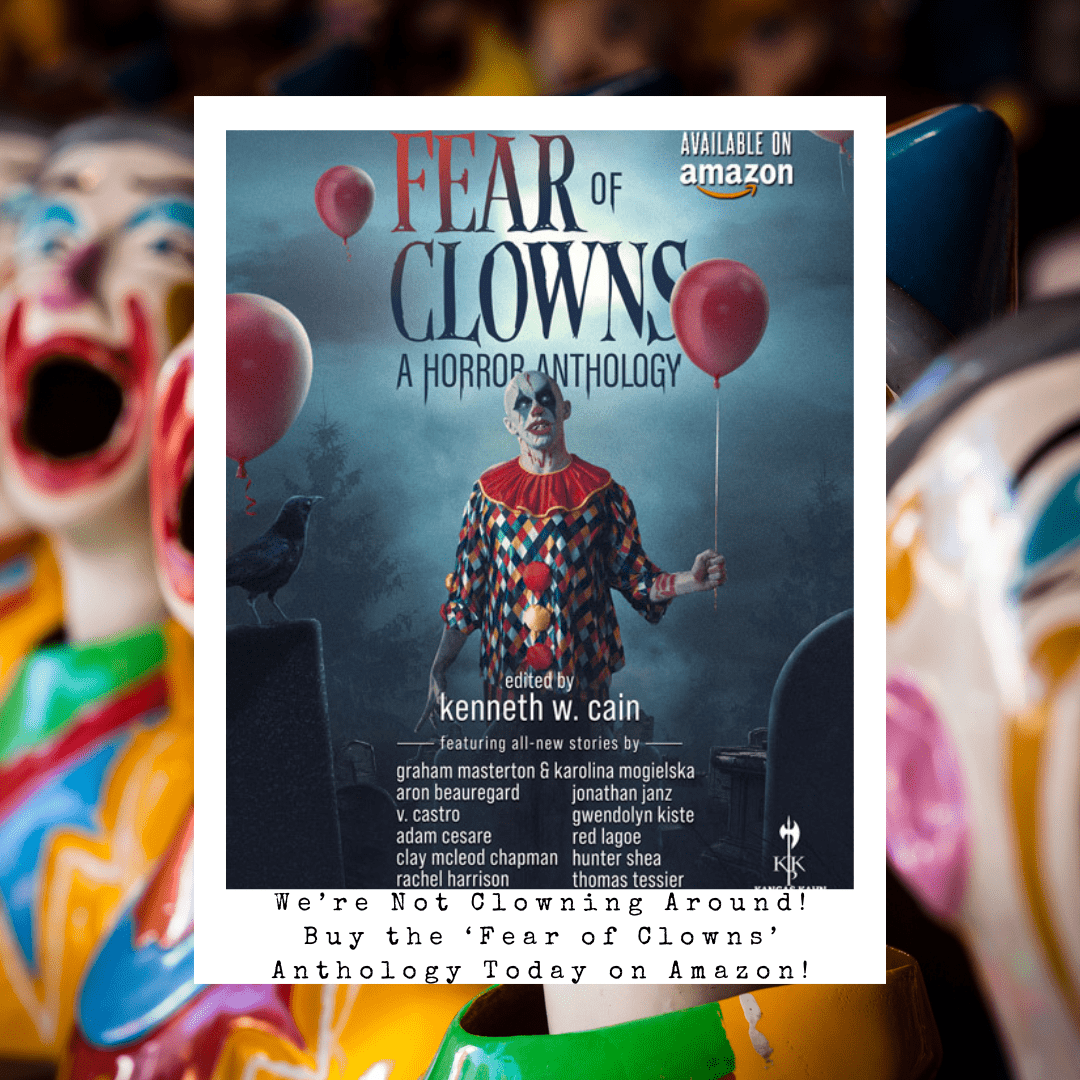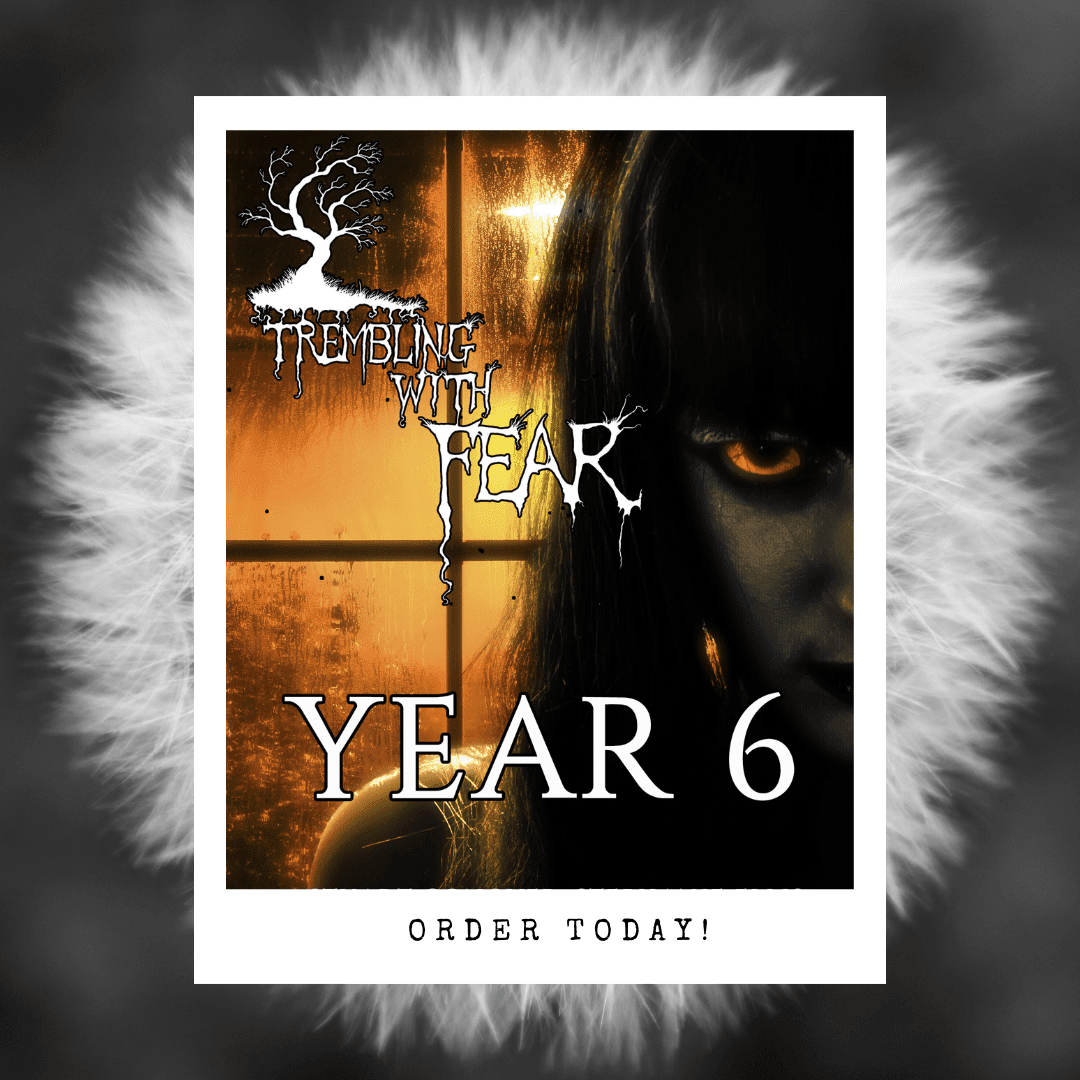Trembling With Fear 06/24/2018
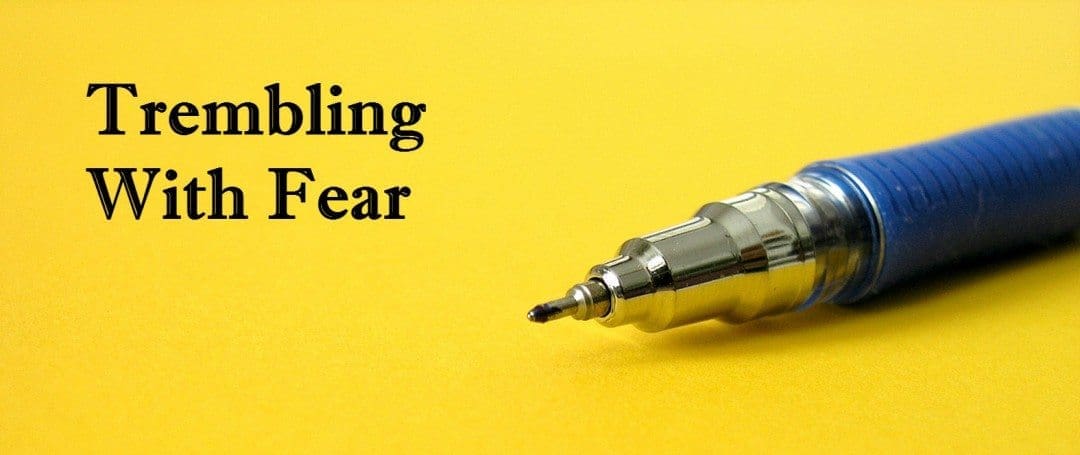
This week has seen the release of the Drabbledark anthology, edited by Eric Fomley (available on Amazon). I am currently waiting for my Kickstarter copy but am really looking forward to reading it as I know so many of you belong to the Horror Tree/TWF family. A great warmup to our own little anthology which, once contract amendments have been returned, should be out there soon, too. It’s lovely to see our writers combining together to get their work to a wider audience.
As mentioned last week, I was attempting to get a story submitted to Cemetery Dance and I managed that with a few days to spare. I hope others here had a go too. Such opportunities are rare so whenever you see them, take them. I’ve also decided to try and find an agent for my novel and have sent the first submission out for that. For those of you who are taking this route as well, what’s your experience of it? Is it something you would recommend or avoid? One thing I noticed when I picked up a copy of the Writers & Artists Yearbook was how anti speculative fiction so many agents seemed to be, ie no horror, no fantasy, no sci-fi, usually lumped in with requests for no children’s books or poetry – at least here in the UK. Does anyone know of a list of agents dedicated to horror/spec fic which Horror Tree authors could easily refer to? I think that’s something we would all find useful (I know I would, hint, hint).
I’ve got another anthology update for you! We’re about 11 confirmations shy of being able to have all of last year’s work included in the anthology and I’ll be sending reminder e-mails this week. Hopefully, that means that by next week I’ll have been able to order a proof copy for Steph and myself to go over!
‘Trembling With Fear’ Is Horror Tree’s weekly inclusion of shorts and drabbles submitted for your entertainment by our readers! As long as the submissions are coming in, we’ll be posting every Sunday for your enjoyment.
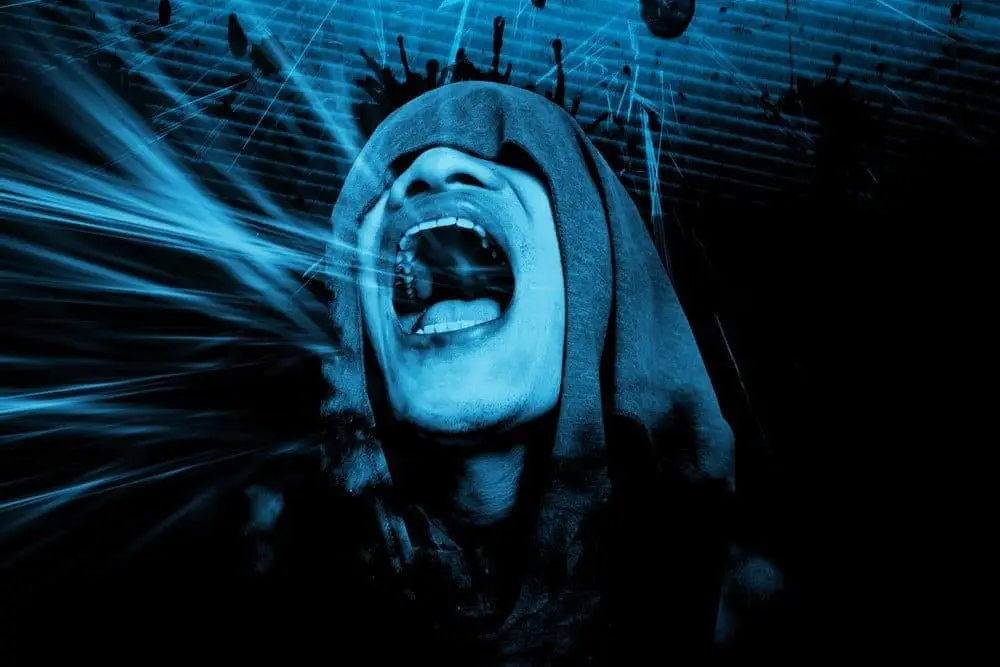
Imp
The gluttonous blue body of the Imp. The dried and peeling skin of the fat bloated belly fell like wrinkled leather feathers onto my comforter. It hadn’t fed in days. It doesn’t feed on a regular schedule, not like us. It feeds like a sassy newborn going through feeding frenzies. Some days it leaves me alone—well, not really alone, but somedays at least it doesn’t gorge itself on my body. Some days it will just sit there, on the end of my bed, on my coffee table, on the shoulders of a friend whom I try to have lunch with, wrapped around the body of my baby nephew like a most terrible and horrible threat. Its gut, like the distended stomach of an Ethiopian infomercial star, slowly flattens over the course of a day or two, and then it begins to feed again.
When the Imp first began invading my space, I could pretend it wasn’t there. So small, the Imp was almost cute when I first met it; benign, I thought.
At my bones it would gnaw and an occasional tickle was all I felt. It was easy then to act like it wasn’t real, like it was just my imagination. But the tickle became less sporadic. And then the frenzies began.
The agonizing sensation of the bug eyed cretan dissolving my bone with its acid-saliva and chewing rapidly like one of those wind-up plastic mouth toys, it felt like the damn Imp was sticking its hand into my flesh and literally wrenching my guts. But I would simply take a head-first ride on the porcelain express and go on ignoring it. But the feedings became more frequent, the pain less bearable, and it stopped biting just my right arm. Somehow it learned how to chew on both my arms at the same time. And my chest. And my legs. And my spine.
When I puked blood in front of my mother, a side-effect of the pain, I was guilted into a trip to the doctor. Not my regular Dr. Keen, but a specialist, one who dealt specially with bone-feeding Imps.
The waiting room looked like any other: sterile walls, sterile music, sterile books, sterile staff. But I wasn’t the only one there with an Imp. There was a lady, with a blue Imp like mine, but it was much smaller, only as big as a Pygmy Marmoset. The thing only seemed interested in the woman’s fingers. Another woman, much older, had a marmoset-sized green Imp, perched upon her shoulder like a parrot, its jagged fingers only brushing back her hair, a benign Imp if ever there was one. There was an Orange Orangutan-sized Imp, covered in festering wounds like little pus-volcanoes, and when it saw me looking at it, it smiled, the man’s intestines it was munching on almost falling out of its mouth. A number of red Imps of varying sizes sat on their victims’ laps, their hands fishing deep for organs. The worst I saw in that waiting room was perched on the back of a chair in which a girl, no older than six, sat. This black Imp, which was too big to rest on the shoulders of the dying girl, clutched its talons on the grey waiting room chair, its spiny obsidian tail wrapped around the girl’s neck like a lazy noose, its weathered leathery wings folded in like the most horrid gargoyle, and its arms, with spikes for elbows, were dug deep into each side of the little girl’s skull. The image of that small child will forevermore be burned into my eyes; writhing in pain, her eyes sunken into her head, sweat sticking to her pale flesh, and her mother doing her best to console her baby and wishing that the Imp would leave her child, or else finish her off in much swifter fashion than it was doing.
I didn’t hear the nurse call my name, I was too enthralled in watching the Imps, studying their variations. “Honey,” my mother patted my hand. Had she ever called me “honey” before? I thought not. “it’s time to go,” she told me. I got up and followed the beaming, edge-of-retirement nurse, who had an Imp of her own. A red one stuck on her back. I don’t think it had started feeding on her quite yet, as it was still very small.
“How long have you been in pain?” Asked the doctor who refused to make eye contact.
“I dunno,” I glanced at my mother, but could not look at her long with guilt of hiding the vampiric creature from her, “a few months.” Tears welled behind my mother’s brown eyes as the doctor typed on his computer. I couldn’t remember her ever crying before.
“And before that, the…tickling, sensation you talked about, how long did that go on for?” The spectacled doctor asked with his back still turned to me.
“Few months before the real pain,” I told the doctor, who I doubted really cared.
Over the course of the next few weeks, the lanky doctor with the round ‘invisible’ glasses tried to kill the Imp. He gave me pills which were supposed to make my body too hostile for the Imp to feed on, but the evil ghoul simply stuck its finger down my throat to purge my body of the medication.
We tried intravenous drugs, which sickened me more than the Imp, though I did see the blue creature lose some of its veracity, but this was merely temporary. A few months after what the doctor proclaimed to be a victory, the Imp came back, hungrier than ever.
My body deteriorated faster than I thought possible. Every morning when I pulled myself out of bed, and later when my mother had to pull me out of bed, I looked like a different person in the mirror. I felt like that small child from the doctor’s office. My eyes were sunk deep into my cranium, and black circles bordered my sockets like a raccoon mask. Every bone on my body protruded like a porcupine’s defensive spikes.
At some point, I think around the same time as when I stopped being able to keep down foods, or even maintain a desire for food, the Imp became the larger entity in our relationship. I had dwindled down to barely over a hundred pounds, at almost six feet tall, and the Imp ballooned up like a well-fed line-backer.
As its food source dwindled, the Imp seemed less and less interested in my body. It still fed, of course, but when other people were around, usually my mother, it would fixate on their body instead, licking its lips and salivating all over itself.
“Mum,” I would say, “if you ever see the Imp, go directly to the doctor. Do not hesitate, no matter how harmless it appears.”
“Yes dear,” she would say in return, placating what she assumed was a mind rotten and on the edge of death, not a human worth arguing with. I tried many times to explain to her about the Imp, tried to tell her how dangerous it was. But she just hushed me and lulled me back to sleep, and in my pitiful castrated state, I let her.
You may ask, why I hadn’t taken my life, when I knew my life was basically over. The answer is, I tried. One of my mother’s past suitors had left behind an old shotgun. I watched a video on how to load and fire the gun, and the Imp turned the barrel in my weak hands at the last moment, blasting off the tip of my right foot. I was kept under special watch in the hospital, highly sedated, for a couple days. The Imp enjoyed the isolation, feeding in private.
My mother kept a close watch on my use of sharp objects and poisonous chemicals after that. I had to resort to taking apart a cheap plastic pencil sharpener for a barely suitable blade. I hacked at my veins, in the bathtub of course, I didn’t want to create an undue mess for my mother. Like cutting a steak with a butter knife, I worked at my flesh for a solid ten minutes, and when I finally opened up the Imp appeared, with my mother’s sewing kit. Once it had me looking like an emaciated homemade doll, the creature force-fed me my own blood. It didn’t care about how it tasted or the quality of the nutrients, so long as it could keep its food source going just a little bit longer. The black thread which runs in x’s down my forearms like cheap made-at-school book binding, still sits in my skin, like the binding of a book.
My mother asked me the other day if there was anywhere I would like to go, “While you still can.”
“The cliffs, just outside of town,” I told her. We are going there later today. I feel in the mood for some cliff diving, even if there is but a foot or so of water at the bottom of those cliffs. We’ll see if that fucking Imp can swim.
Ian Bain
Ian lives in Muskoka Ontario, Canada where he teaches high school English and History. A lifelong lover of all things macabre and monstrous, and a writer from a very early age, Ian began by emulating the works of R.L. Stine. Recently, Ian has been adapting his nightmares into prose. Big life events for Ian include the pending nuptials to his fiancé whom he met while attending Queen’s University.

The Lighthouse
The foreman was told it was an easy job. After all, how hard could it be to tear down an old lighthouse? It was practically falling down.
The first day went well. The inside was cleaned without hassle. It wasn’t until the second day, when they tried to remove the forgotten lantern things changed.
Even after death, loyalty is a virtue. There were many who lived long, happy lives because a piercing beam flashed through past fogs as warning…And they came to defend their savior.
Now, the foreman and his crew are gone. The old lighthouse, however, still stands.
Zachary Finn
Zachary Finn is a lover of all things history and horror. He lives in Rochester, New York, and enjoys hiking with his girlfriend, Natalie, and his dog, Bruce Wayne. He also loves training Ju-Jitsu, and will have a short story included in the upcoming Dragon’s Roost Press Anthology, “Hidden Menagerie.”
Tiger Gonna Eat Your Head
The running joke in Ms. Lipton’s kindergarten class is that a tiger is going to eat someone’s head.
“Tiger gonna eat your head!” one child exclaims to another. Then they all hoot, tossing back their heads. Especially Kevin Busbee.
Boy, is it funny.
Until today.
A nine-foot Bengal stalks into their classroom. The children gawk. They don’t shriek until it pounces on the unsuspecting Ms. Lipton, devouring her head in a single chomp.
Don’t take this lightly. This beast isn’t an imaginary boogeyman. Tigers are terribly real. The children know that now. See, they’ve stopped laughing.
Except for Kevin Busbee.
Scott Hughes
cott Hughes’s fiction, poetry, and essays have appeared in Crazyhorse, One Sentence Poems, Entropy, Deep Magic, Carbon Culture Review, Redivider,Redheaded Stepchild, PopMatters, Strange Horizons, Odd Tales of Wonder, The Haunted Traveler, Exquisite Corpse, Pure Slush, Word Riot, and Compaso: Journal of Comparative Research in Anthropology and Sociology. For more information, visit writescott.com and https://www.amazon.com/author/writescott
Undersea Solitude
Slava heard it again. The banging on the outer door of Russia’s undersea base occurred each midnight for the last week. Could someone be knocking?
For months he’d laid claim to polar oil fields, but solitude took its toll. His chest tightness certainly signaled a developing condition. Air filters or isolation to blame?
Bang.
Slava’s superiors deemed his problems psychosomatic and suspended communications.
Bang.
Was the communication blackout accidental? Was the banging his replacement?
Bang.
Slava bypassed the safeties and turned the door’s wheel. “Hello—“
The crushing weight of frigid water smashed his body and filled the undersea base.
Ryan Benson
Ryan Benson previously found employment as a professor in Boston, MA. He now resides outside of Atlanta, GA with his wonderful wife and three young children where he attempts to write as much as said rambunctious children allow (usually when he should be sleeping). He hopes to one day complete a novel, but until then he keeps himself busy writing short stories. Suspense Magazine, Wordhaus, Short Fiction Break, and Trembling with Fear have published Ryan’s work. His newest short story “Unconditional Victory” is included in the Collapsar Directive science fiction anthology.


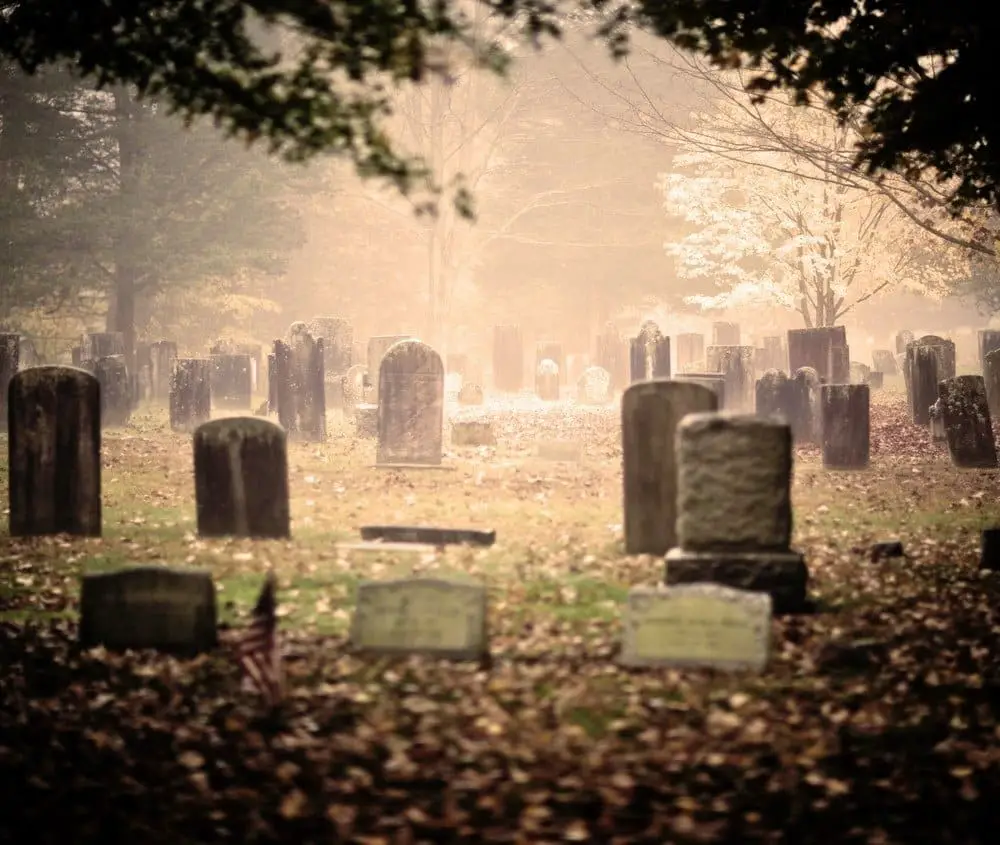


 It was these trade links that would lead to Liverpool becoming the major slaving port in the world. It became the centre of what was known as the ‘Triangular trade’: produce from the factories of Lancashire traded for African slaves; then those slaves traded in the Americas for tobacco, sugar and cotton, which returned to the factories and consumers of Britain. Although few slaves ever made it to Liverpool, at one point Liverpool’s merchants controlled 80% of the UK, and 40% of the world’s slave trade. The city grew fat on the proceeds of slavery, but with the abolition of slavery in Britain and its colonies, a new trade took prominence, cotton. In fact, the cotton trade became so important that during the American Civil War, Liverpool merchants sided with the Confederate cause. And although public opinion supported the North, warships and weapons were secretly built in Liverpool and smuggled across the Atlantic in Confederate ‘blockade runners’.
It was these trade links that would lead to Liverpool becoming the major slaving port in the world. It became the centre of what was known as the ‘Triangular trade’: produce from the factories of Lancashire traded for African slaves; then those slaves traded in the Americas for tobacco, sugar and cotton, which returned to the factories and consumers of Britain. Although few slaves ever made it to Liverpool, at one point Liverpool’s merchants controlled 80% of the UK, and 40% of the world’s slave trade. The city grew fat on the proceeds of slavery, but with the abolition of slavery in Britain and its colonies, a new trade took prominence, cotton. In fact, the cotton trade became so important that during the American Civil War, Liverpool merchants sided with the Confederate cause. And although public opinion supported the North, warships and weapons were secretly built in Liverpool and smuggled across the Atlantic in Confederate ‘blockade runners’. During the 19th Century Liverpool was very much a global city, and on any given day more than 1500 sailing ships would crowd its docks. The ships and their cargos came from the four corners of the world, and the multiracial crews lived in its boarding houses and mixed freely in the teaming bars and brothels that surrounded the docks. Herman Melville the author of Moby Dick, visited here as a young seaman in 1834 and wrote of the experience in his book, Redburn, ‘… sailors love this Liverpool; and upon voyages to distant parts of the globe will be constantly dilating upon its charms and attractions, and extolling its virtues above all other seaports in the world’. It was a wild and violent city, but also for black or Asian crews a very equal city. There was no colour bar and many of these sailors settled in Liverpool and raised their families there. For example, Liverpool has a thriving Chinese community, the oldest in Western Europe (established 1834), with its own Chinese Arch (the largest outside of China).
During the 19th Century Liverpool was very much a global city, and on any given day more than 1500 sailing ships would crowd its docks. The ships and their cargos came from the four corners of the world, and the multiracial crews lived in its boarding houses and mixed freely in the teaming bars and brothels that surrounded the docks. Herman Melville the author of Moby Dick, visited here as a young seaman in 1834 and wrote of the experience in his book, Redburn, ‘… sailors love this Liverpool; and upon voyages to distant parts of the globe will be constantly dilating upon its charms and attractions, and extolling its virtues above all other seaports in the world’. It was a wild and violent city, but also for black or Asian crews a very equal city. There was no colour bar and many of these sailors settled in Liverpool and raised their families there. For example, Liverpool has a thriving Chinese community, the oldest in Western Europe (established 1834), with its own Chinese Arch (the largest outside of China). However the largest cultural impact on Liverpool itself came not from the Americas, Africa or even the Far East, but from much closer to home, Ireland. In 1845 the disastrous Irish Potato Famine killed a million people and caused millions to leave Ireland. In the space of three years, two million Irish landed in Liverpool seeking passage to a new life, and many of the poorest could go no further. In the census of 1861 a third of the population of the city had been born in Ireland. Liverpool ceased to be an English city, but neither was it an Irish one. The mixing of these two cultures, together with the Scots, Welsh, African, Chinese and even Jews escaping Russian Pogroms, made it what it is today. In fact Carl Jung once called Liverpool, ‘The Pool of Life’, as he thought it represented the whole world in one place.
However the largest cultural impact on Liverpool itself came not from the Americas, Africa or even the Far East, but from much closer to home, Ireland. In 1845 the disastrous Irish Potato Famine killed a million people and caused millions to leave Ireland. In the space of three years, two million Irish landed in Liverpool seeking passage to a new life, and many of the poorest could go no further. In the census of 1861 a third of the population of the city had been born in Ireland. Liverpool ceased to be an English city, but neither was it an Irish one. The mixing of these two cultures, together with the Scots, Welsh, African, Chinese and even Jews escaping Russian Pogroms, made it what it is today. In fact Carl Jung once called Liverpool, ‘The Pool of Life’, as he thought it represented the whole world in one place. The inhabitants of Liverpool, whatever their creed or colour are officially called Liverpudlians, but more commonly referred to as ‘Scousers’. This nickname being derived from a local stew called, Scouse, which in turn gives its name to the local dialect. The accent is a distinctive mixture of English and Irish and will be familiar to anyone who remembers the Beatles.
The inhabitants of Liverpool, whatever their creed or colour are officially called Liverpudlians, but more commonly referred to as ‘Scousers’. This nickname being derived from a local stew called, Scouse, which in turn gives its name to the local dialect. The accent is a distinctive mixture of English and Irish and will be familiar to anyone who remembers the Beatles.
![[ ] [ ]](http://futurefire.net/images/fic-email.gif) ) as an attachment. We prefer .doc, .docx, .rtf or .odt files (query first for any other format). Please use a common, easy-to-read font such as Times New Roman/Palatino and use no other formatting than italics. Do not include your name anywhere in the document. We read and make all decisions based upon anonymised submissions.
) as an attachment. We prefer .doc, .docx, .rtf or .odt files (query first for any other format). Please use a common, easy-to-read font such as Times New Roman/Palatino and use no other formatting than italics. Do not include your name anywhere in the document. We read and make all decisions based upon anonymised submissions.

